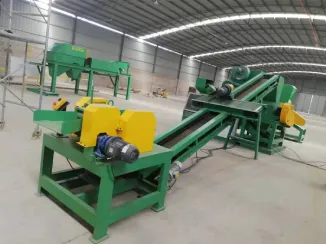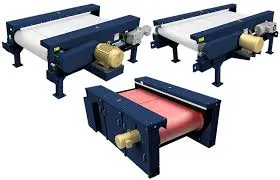Recycling PCB boards is an essential aspect of modern electronic waste management, reflecting our commitment to environmental responsibility and resource efficiency. With technology advancing at an unprecedented pace, the accumulation of electronic waste, particularly printed circuit boards (PCBs), has posed significant environmental challenges. As a seasoned electronics recycling expert, I will guide you through an innovative approach to recycling PCB boards, maximizing both environmental benefits and resource recovery.

Printed circuit boards are the heart of most electronic devices. They connect and support the electronic components, making them vital for the functionality of gadgets. However, they contain a complex array of materials, including metals, glass fibers, and resins, which require specialized techniques for effective recycling.
The first crucial step in recycling PCB boards is collection. Efficient collection systems are necessary to ensure these boards don't end up in landfills. Collaboration with tech companies and manufacturers can enhance the retrieval of obsolete or damaged boards at their end-of-life phase. Such partnerships not only reduce environmental impact but also streamline the recycling process.

Once collected, the PCBs undergo a pre-treatment phase, an essential step that involves sorting, dismantling, and shredding. In this phase, it's vital to separate the non-metallics from the metallic particles efficiently. Advanced automated systems can significantly improve the accuracy and speed of this process. By utilizing state-of-the-art artificial intelligence and machine learning algorithms, recyclers can enhance the disassembly process, ensuring minimal material loss and contamination.
Following pre-treatment, thermal or chemical processing is employed to recover precious metals such as gold, silver, and copper. Pyrometallurgical and hydrometallurgical methods stand at the forefront of this stage. Pyrometallurgy involves smelting, allowing metal components to separate from the non-metallic material through high temperatures. On the other hand, hydrometallurgy uses chemical solutions to dissolve and extract metals. When optimized, these methods offer high recovery rates and purity, crucial for sustainable metal reuse.
how to recycle pcb boards
However, these traditional methods are continually evolving. Innovations such as bioleaching, where bacteria are used to extract metals, offer promising, eco-friendly alternatives. Bioleaching reduces the environmental footprint of the recycling process, and ongoing research is enhancing its commercial viability. As recycling evolves, keeping abreast of these advancements can substantially impact both environmental outcomes and economic returns.
To ensure the recycled material's reliability, rigorous quality control measures must be in place. Employing advanced spectroscopy and elemental analysis tools enables recyclers to ascertain the purity of recovered metals. This not only bolsters trust in recycled materials but also encourages manufacturers to integrate them into their production cycles, creating a sustainable lifecycle.
Enhancing consumer awareness and involvement is another critical component. Educational initiatives about the importance of recycling PCB boards can drive consumer action and engagement. Providing clear recycling guidelines and accessible drop-off points can facilitate increased consumer participation. Moreover, instilling a culture of responsibility among consumers and manufacturers alike holds the key to sustainable electronic waste management.
In conclusion, recycling PCB boards offers an opportunity not just to mitigate environmental impact but also to reclaim valuable resources effectively. By adopting efficient collection strategies, employing advanced recovery techniques, and leveraging new technologies, industries can enhance their sustainability practices significantly. Trustworthy recycling processes, coupled with strong consumer and manufacturer engagement, pave the way for a future where technological advancement aligns seamlessly with environmental stewardship. For manufacturers, tapping into this eco-friendly initiative not only enhances brand reputation but also affirms a commitment to sustainable growth, making electronic recycling a cornerstone of modern corporate responsibility.


